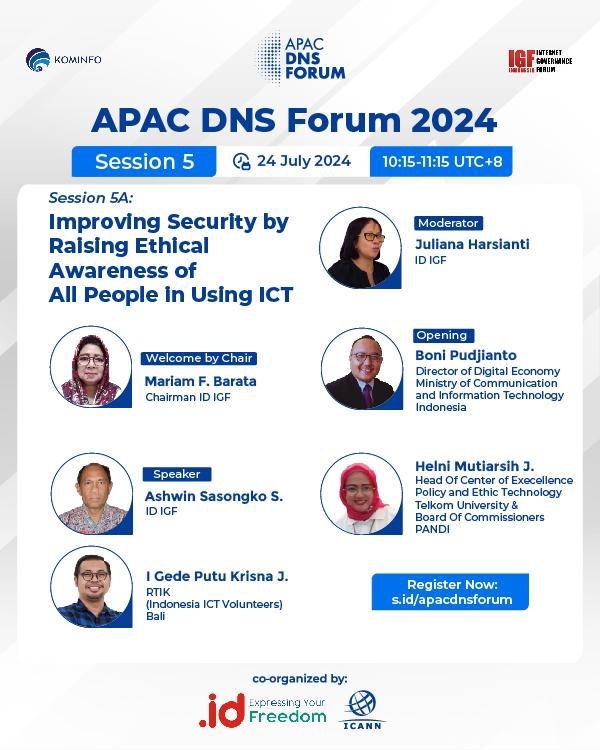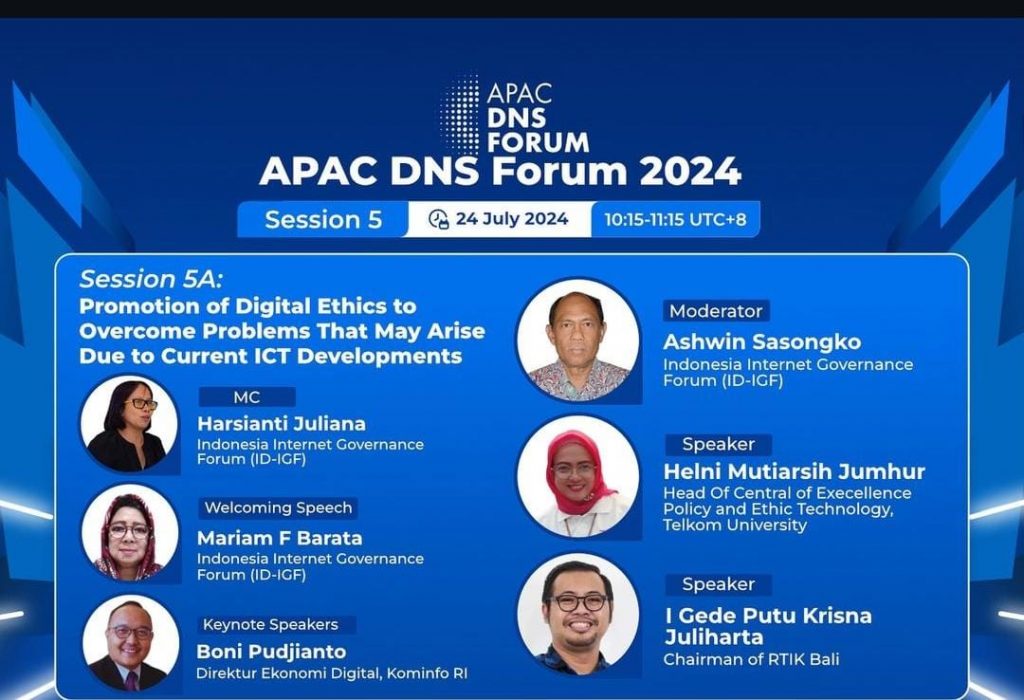
They are improving security by raising ethical awareness among all people using ICT. Current information and communication technology developments happen very fast in various fields. Many of these innovations have been used globally. They have positive and negative impacts. Due to its cross-jurisdiction nature, the innovation can have both good and bad implications, such as causing illegal content to spread quickly.
Register Now: https://s.id/apacdnsforum
Many initiatives exist to overcome these problems, including national regulations, regional initiatives, and multistakeholder cooperation. One notable method that Indonesia is aware of is increasing the awareness of ICT users of digital ethics, previously known as cyber ethics.
Indonesia hosted IGF 8 in 2013. During the HLLM High-Level Leaders Meeting, Indonesia raised the issue of enabling growth and sustainable development through Cyber Ethics. The successful HLLM and IGF 8 may reflect the importance of ethics in achieving a more secure internet.
This emphasizes the need to promote further digital ethics, especially to users. Users need to have this understanding as well, and this starts when they start using digital products, be it hardware, software, or internet platforms. For example, users must agree to the operators’ terms and conditions when they apply for social media and inter-messaging services.
These terms and conditions require users to use their services for suitable activities and abide by community guidelines. The service offered can be used only after users agree to the terms and conditions. This understanding of terms and conditions should also apply to other digital products, such as software as services, cloud systems, and various hardware.

The fundamental idea of this session is to explore whether the digital ethics approach, through its terms and conditions, is currently being used by various operators of social media and inter-messaging services and is effective.
Also, whether this can be replicated in other technology services, too, technically, this must be further developed so that the high-level language, such as software as a service, hardware and so on, can only be used after the user agrees with the terms and conditions. Massive socialization can then follow this, which requires all users to follow the terms and conditions.
This approach is expected to raise awareness that every person should use any hardware and software according to the terms and conditions, i.e., for excellent and legal activities only, as stipulated in the terms and conditions.
Donny B.U. / ID-IGF
